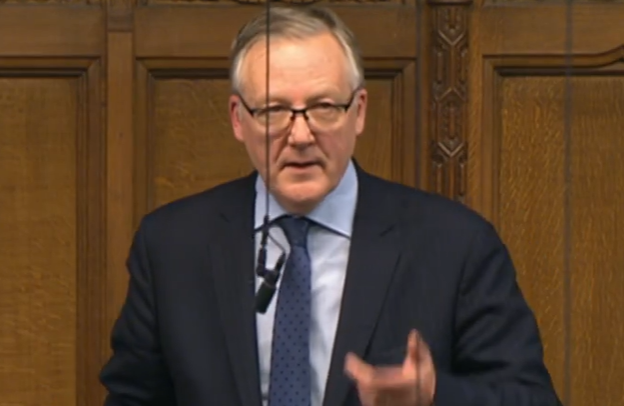Mr Cartlidge highlighted that His Majesty’s Revenue and Customs (HMRC) “has learned lessons from previous operational activity and is developing a number of criminal investigations into those involved in waste crime”.

He also stated that HMRC has deployed more resources, doubling staff numbers to 50, to increase the number of civil investigations of landfill tax non-compliance. He acknowledged that it is a “relatively difficult tax to enforce”.
In response to criticism from MPs, he argued that the tax should be considered in light of the reduction in landfill it has helped achieve.
“Imagine how many square miles of our wonderful countryside would now be taken up by landfill. It is a striking thought,” he said. However, he also acknowledged that there is always more work to do in tackling those who try to take advantage of the system.
Debate
The debate was secured by Kevan Jones, the Labour MP for North Durham, who argued that there are solutions to landfill tax fraud but that “blind eyes have been turned by various government agencies” and that there is a lack of political will to fully address the issue and its impact on revenue collection and communities.

Mr Jones also pointed out that the success of the tax is debatable as it is unclear what is being placed in landfills.
He further highlighted that there are “strands” to landfill tax fraud, including misdescription of inert waste to benefit from the lower rate, and setting up illegal sites without a permit. He criticised the Environment Agency for not properly enforcing regulations and said there are “no real sanctions” for these activities.
Other MPs present also spoke about how waste crime and landfill tax fraud has impacted their constituents and condemned the government for not properly enforcing regulations and not adequately resourcing the Environment Agency.
They gave examples of how waste crime has affected residents, with many saying that the agency was not properly resourced to address the problem.
Mr Jones argued that the government’s approach to waste crime has been inadequate and that the Environment Agency lacks the necessary tools and resources to effectively tackle the issue. He stated: “For too long, waste crime has gone unnoticed by Environment Agency officers. That begs the question, what is going on? Are they indolent? Are they incompetent? Are they involved? Are they being bribed? No. The simple truth is that they do not have the tools they need to do the job.”
Landfill tax
It has been estimated that landfill tax fraud costs HMRC £124 million in missed revenues, while the total waste crime cost to the economy was put at around £1 billion by the Public Accounts Committee.
Rounding off the debate, the Treasury minister committed to publishing an annual framework of indicators to track progress towards the objectives set out in the resource and waste strategy, including indicators of illegal waste sites, fly-tipping and littering.
He said this would help tackle the issue of a lack of data. He also highlighted work to improve the fit and proper persons test as part of the review into landfill tax fraud.
However, Mr Jones said this did not “fill him with confidence”, and said the minister’s statement was “great, flowery civil service language”.





Subscribe for free